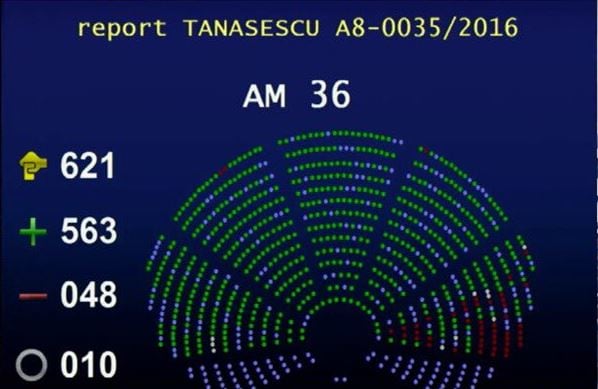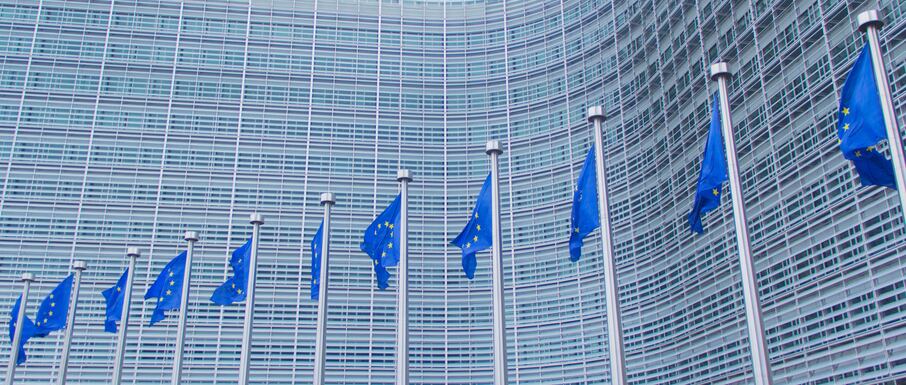Plastic not fantastic
European politicians voted in favour of the Commission’s Plastics Strategy in a plenary session on Wednesday (24 October) this week.
The strategy, which was backed by the ENVI committee two weeks ago, places market restrictions on single-use plastic items such as plastic straws, stirrers, cotton bud sticks, cutlery and plates, balloon sticks, oxo-degradable plastic products, and food and beverage take-away containers made of expanded polystyrene.
Where alternatives are readily available and affordable, single-use plastic products will be banned from the market. For products without straightforward alternatives, the focus is on limiting their use through national campaigns, labelling requirements and waste management or clean-up obligations for producers.
The top three items found littering beaches and coastlines are plastic bottles, caps and lids; cigarette butts; and cotton bud sticks.
It also ensures that biodegradable plastics are subject to the same restrictions as other materials defined as substitutes for single-use plastic. Many materials currently labelled as biodegradable break down into microplastic particles that are damaging to the environment and health.
The result was welcomed by EU commissioner for environment, maritime affairs and fisheries, Karmenu Vella.
“Today we are one step closer to eliminating the most problematic single-use plastic products in Europe,” Vella said. “The Commission has promised to be big on big things – and plastic pollution and marine litter are among the biggest challenges of our times. That is why we invested in a legislative proposal to reduce single-use plastic items and abandoned fishing gear.
“[The result] sends a clear signal that Europe is ready to take decisive, coordinated action to curb plastic waste and to lead international efforts to make our oceans plastic-free.”
Environmental campaigners welcomed the vote but said politicians missed a chance to remove loopholes in the strategy, for example, surrounding the definition of single-use plastic. Any product labelled as reusable or re-fillable, even if the product design demonstrates that it is not intended for multi-use, now falls outside the EU Single-use Plastic Directive scope.
Samantha Burgess, head of marine policy at the WWF European Policy Office, said: “[To] not include light-weight plastic bags, one of the most pervasive forms of marine litter and one of the easiest plastic items to replace with sustainable alternatives, is extremely disappointing.”
Unfair trading practices
The European Parliament backed efforts to crack down on so-called unfair trading practices (UTPs) in the food supply chain with a series of amendments that are designed to harden the position initially set out by the European Commission.
In a vote yesterday (25 October), MEPs gave rapporteur Paolo De Castro a mandate to start negotiations on the issue with the EU Council and Commission with 428 votes in favour and 170 votes against.
The report prohibits 58 unfair practices by buyers but none by large sellers, prompting criticisms from European retailers.
To read more about the report and reactions to it, click here.
Tougher rules on antibiotics in farming
This week, the European Parliament voted in favour of tougher rules on the use of antibiotics in farm animals in a bid to reduce antimicrobial resistance.
The report received 563 votes in favour and 48 against with 10 abstentions.

Under the new rules, meat and dairy producers will be banned from using antimicrobials as a routine preventive measure. Using antimicrobials in healthy animals will only be allowed on an exceptional basis, for example, after surgery and on an individual basis. If several animals in a group are sick, however, farmers can still treat the entire group in order to prevent the spread of infection or disease.
Director-general of the European Consumer Organisation (BEUC) Monique Goyens said the new law was “a significant answer to a looming health crisis”.
The World Health Organisation considers antimicrobial resistance to be one of the biggest global health threats today.
“EU consumer groups have long been advocating for an end to the routine preventive use of antibiotics in farm animals. Vital antibiotics should be reserved for treating infections in people. Both will become reality now and this is very good news.
“It is only fair that our trading partners should follow the same rules as EU farmers when they export their meat to Europe. Meat imported to the EU should not be derived from animals which are fed antibiotics to stimulate their growth – and the industry’s profits."
Goyens regretted that the obligations will not enter into force for several years.
Commissioner for health and food safety Vytenis Andriukaitis said: “With the new legislation on veterinary medicinal products and medicated feed, we confirm the EU’s position as a world leader in acting against antimicrobial resistance and contribute to global progress in this critical area.”
Food funding revealed
The European Commission will provide funding of €172.5 million from the EU agricultural budget to promote EU agri-food products in Europe and across the world.
A total of 79 campaigns will be rolled out over the next three years covering foods such as dairy products, olives and olive oil, and fruit and vegetables.
Of the 79 approved programmes, 48 target non-EU countries and 23 programmes are dedicated to the fruit and vegetables sector.
The call for proposals was launched in January 2018 and attracted applications from trade organisations, producer organisations and agri-food. Successful applicants from 19 member states were selected by the Consumers, Health, Agriculture and Food Executive Agency (CHAFEA), with the help of external experts.
Recipients of the funding include the Alliance of Baltic Beverage Industry, the Bulgarian National Association of Milk Processors and the Association of Polish Fruit and Vegetables Distributors.
For the full list of accepted proposals, click here.
Agriculture and rural development Commissioner Phil Hogan said: “Europe is known around the world for its good quality food products and its culinary heritage. EU producers can count on the support of the EU Commission to help spread the word in Europe and beyond about their high quality products.
“I have been travelling myself to several countries around the world, like China, Japan, Mexico or Colombia to open new markets for our products. There is great potential ahead of us.”
Top brass changes at EIT Food
Filip Fontaine will step down as interim CEO of The European Institute of Innovation and Technology (EIT) Food in November to be replaced by Dr. Andy Zynga, who will be serve as the institution’s permanent CEO.
Zynga has a Master’s degree in business administration and mechanical engineering from the Technical University of Berlin, and a PhD on (Open) Innovation Management from RWTH Aachen.
He previously held corporate positions in NineSigma, KPMG Consulting and Vanco.
“I truly believe that Europe has all the ingredients in place to make its food industry the global leader in consumer-focused innovation and associated business growth,” Zynga said.
“I am looking forward to working with the team at EIT Food, including the supervisory board, and all stakeholders, to build on successes and quickly expand value creation across the entire food industry value system in Europe.”
Balancing the books
EU exports have remained stable compared with last year's “high performance” with a value of €136.6 billion for the 12-month period ending in August this year, according to a Commission trade report.
The value of EU agri-food trade in the month of August 2018 experienced a moderate decline to €11.3 billion in exports and €9.1 billion in imports.
Over the past year, “major gains” in annual export values were made to Japan, Ukraine, Russia, Singapore and Turkey.
For imports, meanwhile, the USA remains one of the most important sources with “a notably significant increase” in imports of US soybeans in August 2018.
Over the past year, exports of alcoholic drinks such as wine, spirits and liqueurs performed well as did exports of pasta and pastry, infant food, pet food, waters and soft drinks.
Exports of wheat, milk powder and pork meat decreased.



